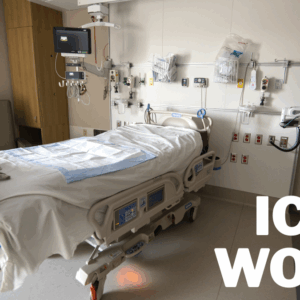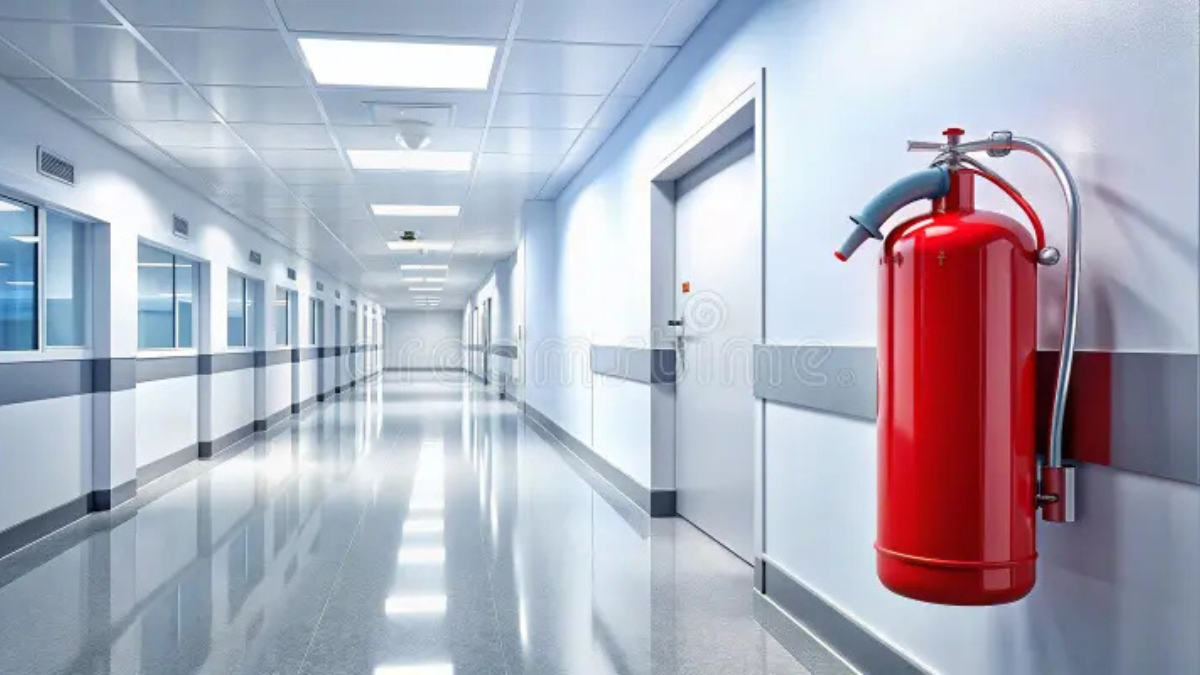Cardiovascular diseases continue to be one of the leading causes of mortality across the globe. As the demand for specialized heart care grows, patients and families are increasingly seeking out the best cardiology hospitals for diagnosis, treatment, and long-term care. But how do you determine which cardiology hospital is best for you or your loved one? With advancements in medical technology, diverse treatment protocols, and varying hospital infrastructure, the decision isn’t always easy.
In this comprehensive guide, we explore the critical factors you must consider when selecting a top cardiology hospital. From specialized services to hospital credentials, patient care quality, and cutting-edge technology, every aspect of heart care matters.
Key Takeaway
Choosing the best cardiology hospital isn’t just about name or location—it’s about quality, safety, and trust. Look for accredited hospitals with expert cardiologists, modern technology, patient-centric care, and transparent costs. Your heart deserves nothing less.
Why Choosing the Right Cardiology Hospital Is Critica
Impact on Patient Outcomes
The success of heart-related treatments—from bypass surgery to angioplasty—greatly depends on the skill level of the medical team and the facilities available. A highly reputed cardiology hospital with trained professionals and modern tools can significantly improve patient outcomes and recovery times.
Access to Emergency and Critical Care
Heart conditions can escalate quickly. Whether it’s a heart attack, arrhythmia, or congestive heart failure, immediate access to advanced emergency care can be life-saving. Choosing a hospital with 24/7 emergency cardiac units can make a critical difference.
Key Factors to Consider When Selecting a Cardiology Hospital
Board-Certified Cardiologists and Cardiac Surgeons
Why Board Certification Matters
Board certification indicates that the doctors have completed specialized training and passed rigorous exams in their field. This assures patients of their competence in dealing with complex cardiovascular cases.
How to Verify Credentials
Most reputable hospitals display physician credentials on their websites. You can also cross-check certifications through national or regional medical boards.
Range of Cardiology Services Offered
Comprehensive Heart Care
A good cardiology hospital should provide a full spectrum of services:
- Preventive cardiology
- Non-invasive cardiology
- Invasive cardiology
- Interventional cardiology
- Electrophysiology
- Cardiothoracic surgery
- Rehabilitation programs
Multidisciplinary Teams
Hospitals with integrated departments—like nephrology, endocrinology, and neurology—ensure better holistic care for heart patients with co-existing conditions.
Hospital Accreditation and Quality Ratings
Look for Reputable Certifications
A hospital’s accreditation from national or international healthcare quality organizations indicates adherence to high standards. Examples include:
- JCI (Joint Commission International)
- NABH (National Accreditation Board for Hospitals & Healthcare Providers)
- ISO certifications
Patient Outcome Metrics
Compare data like:
- Mortality rates
- Readmission rates
- Infection control practices
- Surgery success rates
These statistics reflect the hospital’s competency in handling cardiovascular procedures.
Advanced Medical Technology and Infrastructure
State-of-the-Art Equipment
Top cardiology hospitals invest in the latest medical technology:
- 3D echocardiography
- Cardiac MRIs
- Intravascular ultrasound (IVUS)
- Electrophysiology mapping systems
- Robotic-assisted cardiac surgery
ICU and Emergency Readiness
Make sure the hospital is equipped with:
- Dedicated Cardiac ICU
- 24/7 cardiac ambulance
- Fully automated monitoring systems
- On-call emergency cardiac team
Patient Reviews and Reputation
Trust What Other Patients Say
Online reviews, testimonials, and star ratings offer insights into the hospital’s patient care quality, hygiene standards, and communication effectiveness.
Third-Party Review Platforms
Use independent review platforms or healthcare rating sites to cross-check hospital ratings. Avoid relying solely on marketing or advertisements.
Location, Accessibility, and Support Services
Proximity Matters
In cardiac emergencies, every minute counts. A hospital located near your home or office is beneficial in urgent scenarios.
Amenities and Support Services
Look for hospitals that provide:
- On-site pharmacies
- Family waiting lounges
- Cafeteria and guest rooms
- Insurance assistance
- Post-discharge rehabilitation and counseling
Cost Transparency and Insurance Tie-Ups
Understand the Pricing
Cardiology procedures can be expensive. The best hospitals offer transparent pricing for surgeries, diagnostics, ICU charges, and consultation fees.
Insurance and Cashless Facility
Choose hospitals that have tie-ups with major insurance providers and offer cashless claim options for a hassle-free experience.
Research and Innovation in Cardiology
Cutting-Edge Treatments
Leading hospitals often participate in international cardiology research and clinical trials. This gives patients access to innovative treatment options.
Academic Excellence
Hospitals that are also teaching institutes usually maintain higher standards due to their continuous training, research programs, and student involvement.
Post-Treatment Follow-Up and Rehabilitation
Why Follow-Up Is Important
Cardiac conditions require long-term monitoring and lifestyle changes. Hospitals offering follow-up consultations, cardiac rehab programs, and dietary counseling deliver better long-term results.
Holistic Care Approach
Integrated care teams including physiotherapists, psychologists, and nutritionists help support recovery beyond medical treatment.
Hospital Hygiene and Safety Protocols
Infection Control
The hospital must follow strict cleanliness, disinfection, and infection control protocols to protect vulnerable cardiac patients.
COVID-19 and Contagion Readiness
Check whether the hospital is prepared for pandemics or other outbreaks, offering safe and isolated care for heart patients during such times.
Questions to Ask Before Finalizing a Cardiology Hospital
- What are the credentials and experience of the cardiologists?
- Does the hospital offer 24/7 emergency heart care?
- What kind of heart procedures are performed and what is their success rate?
- Is the facility accredited by national or international bodies?
- Does the hospital offer rehabilitation and long-term follow-up?
- Is there cost transparency and insurance coverage?
- Are patient reviews generally positive?
Benefits of Choosing the Right Cardiology Hospital
Better Diagnosis and Treatment
Expert teams and modern equipment mean faster, more accurate diagnoses and more effective treatment plans.
Improved Patient Comfort
Clean, well-maintained facilities with supportive staff can make a big difference in the recovery journey.
Higher Success Rates
Experienced surgeons, proper ICU support, and advanced tools often result in higher treatment success and survival rates.
Common Mistakes to Avoid When Choosing a Cardiology Hospital
- Choosing based on advertisement only
- Ignoring patient feedback
- Overlooking insurance compatibility
- Ignoring emergency care availability
- Not verifying credentials and success rates
Top Features of a World-Class Cardiology Hospital
- Dedicated Heart Institutes
- Accredited Cath Labs
- Minimally Invasive Surgery Units
- 24/7 Emergency Response Teams
- Rehabilitation and Counseling Services
- Teleconsultation Services
- Global Patient Services for Medical Tourism
Conclusion
Heart health is one of the most crucial aspects of overall well-being. Choosing the right cardiology hospital can dramatically improve diagnosis, treatment success, and recovery time. Whether you’re facing a minor cardiac issue or a major heart surgery, every decision you make should be informed and thoughtful.
By considering factors like medical team expertise, hospital accreditation, range of services, technological infrastructure, patient care quality, and cost transparency, you can ensure your heart is in the best hands. Don’t rush this process—your health depends on it.
7 FAQs
Q1: What type of heart conditions do cardiology hospitals treat?
A: Cardiology hospitals manage a wide range of conditions including heart attacks, arrhythmias, congenital heart disease, coronary artery disease, heart failure, and more.
Q2: How can I verify a cardiologist’s credentials?
A: You can check hospital websites, government medical boards, or independent certification portals for qualifications, specializations, and board certifications.
Q3: Are cardiology hospitals different from general hospitals?
A: Yes, cardiology hospitals have specialized infrastructure, teams, and technology specifically focused on cardiovascular health, unlike general hospitals.
Q4: What are the signs of a good cardiology hospital?
A: Signs include modern technology, a qualified team, good patient outcomes, emergency care services, positive reviews, and proper accreditation.
Q5: How much does heart surgery cost in a cardiology hospital?
A: Costs vary depending on location, type of procedure, hospital infrastructure, and whether the hospital accepts insurance. Always ask for a detailed breakdown.
Q6: What post-surgery services should I expect?
A: Expect cardiac rehab, physiotherapy, follow-up consultations, medication management, dietary plans, and emotional support.
Q7: Is it safe to opt for cardiology hospitals abroad for treatment?
A: Many international hospitals offer world-class cardiology services. Ensure they are accredited, have transparent costs, and offer assistance for foreign patients.






